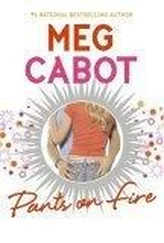Мэг Джей - Сверхнормальные
Здесь есть возможность читать онлайн «Мэг Джей - Сверхнормальные» — ознакомительный отрывок электронной книги совершенно бесплатно, а после прочтения отрывка купить полную версию. В некоторых случаях можно слушать аудио, скачать через торрент в формате fb2 и присутствует краткое содержание. Город: Москва, Год выпуска: 2018, ISBN: 2018, Издательство: Манн, Иванов и Фербер, Жанр: Психология, на русском языке. Описание произведения, (предисловие) а так же отзывы посетителей доступны на портале библиотеки ЛибКат.
- Название:Сверхнормальные
- Автор:
- Издательство:Манн, Иванов и Фербер
- Жанр:
- Год:2018
- Город:Москва
- ISBN:9785001175667
- Рейтинг книги:5 / 5. Голосов: 1
-
Избранное:Добавить в избранное
- Отзывы:
-
Ваша оценка:
- 100
- 1
- 2
- 3
- 4
- 5
Сверхнормальные: краткое содержание, описание и аннотация
Предлагаем к чтению аннотацию, описание, краткое содержание или предисловие (зависит от того, что написал сам автор книги «Сверхнормальные»). Если вы не нашли необходимую информацию о книге — напишите в комментариях, мы постараемся отыскать её.
Сверхнормальные — читать онлайн ознакомительный отрывок
Ниже представлен текст книги, разбитый по страницам. Система сохранения места последней прочитанной страницы, позволяет с удобством читать онлайн бесплатно книгу «Сверхнормальные», без необходимости каждый раз заново искать на чём Вы остановились. Поставьте закладку, и сможете в любой момент перейти на страницу, на которой закончили чтение.
Интервал:
Закладка:
716
James W. Pennebaker, Steven D. Barger, and John Tiebout, «Disclosure of Traumas and Health Among Holocaust Survivors», Psychosomatic Medicine 51, no. 5 (1989): 577–589.
717
Laura E. Finkelstein and Becca R. Levy, «Disclosure of Holocaust Experiences: Reasons, Attributions, and Health Implications», Journal of Social and Clinical Psychology 25, no. 1 (2006):117–140.
718
Об исповеди см. в Chloe Taylor, The Culture of Confession from Augustine to Foucault: A Genealogy of the ‘Confessing Animal’ (New York: Routledge, 2009).
719
Josef Breuer and Sigmund Freud, Studies in Hysteria (New York: Basic, 2000), 30.
720
Stanley B. Messer and Bruce E. Wampold, «Let’s Face Facts: Common Factors Are More Potent than Specific Therapy Ingredients», Clinical Psychology: Science and Practice 9, no. 1 (2002): 21–25; Bruce E. Wampold, «Absolute Efficacy: The Benefits of Psychotherapy Established by Meta-Analysis», in The Great Psychotherapy Debate: Models, Methods, and Findings, vol. 9 (New York: Routledge, 2013), 58–71; Bruce E. Wampold, «Relative Efficacy: The Dodo Bird Was Smarter than We Have Been Led to Believe», in The Great Psychotherapy Debate: Models, Methods, and Findings, vol. 9 (New York: Routledge, 2013), 72–118; Bruce E. Wampold et al., «A Meta-Analysisof Outcome Studies Comparing Bona Fide Psychotherapies: Empiricially, ‘All Must Have Prizes», Psychological Bulletin 122, no. 3 (1997):203–215.
721
Joanne Frattaroli, «Experimental Disclosure and Its Moderators: A Meta-Analysis», Psychological Bulletin 132, no. 6 (2006): 823–865.
722
Joanne Frattaroli, «Experimental Disclosure and Its Moderators: A Meta-Analysis», Psychological Bulletin 132, no. 6 (2006), pp. 823–865; теории относительно того, почему писать полезно, представлены также в Laura A. King, «Gain Without Pain? Expressive Writing and Self-Regulation», in The Writing Cure: How Expressive Writing Promotes Health and Emotional Well-Being, eds. Stephen J. Lepore and Joshua M. Smyth(Washington, DC: American Psychological Association, 2002), 119–134; Denise M. Sloan and Brian P. Marx, «Taking Pen to Hand: Evaluating Theories Underlying the Written Disclosure Paradigm», Clinical Psychology: Science and Practice 11, no. 2 (2004):121–137; Joshua M. Smyth and James W. Pennebaker, «Exploring the Boundary Conditions of Expressive Writing: In Search of the Right Recipe», British Journal of Health Psychology 13, no. 1 (2008): 1–7.
723
Anita E. Kelly et al., «What Is It About Revealing Secrets That Is Beneficial?», Personality and Social Psychology Bulletin 27, no. 6 (2001): 651–665; James W. Pennebaker, «Putting Stress into Words: Health, Linguistic, and Therapeutic Implications», Behaviour Research and Therapy 31, no. 6 (1993): 539–548.
724
Ahmad R. Hariri, Susan Y. Bookheimer, and John C. Mazziotta, «Modulating Emotional Responses: Effects of a Neocortical Network on the Limbic System», Neuroreport 11, no. 1 (2000): 43–48.
725
Ahmad R. Hariri et al., «Neocortical Modulation of the Amygdala Response to Fearful Stimuli», Biological Psychiatry 53, no. 6 (2003): 494–501; см. также Stephan F. Taylor et al., «Subjective Rating of Emotionally Salient Stimuli Modulates Neural Activity», Neuroimage 18, no. 3 (2003): 650–659.
726
Louis Cozolino, The Neuroscience of Psychotherapy: Building and Rebuilding the Human Brain (New York: Norton, 2010), 155.
727
Ruth Kluger and Lore Segal, Still Alive: A Holocaust Girl Remembered (New York: Feminist Press, 2003), 180.
728
Издана на русском языке: Эрно А. Обыкновенная страсть. Стыд. Изд-во «Кстати», 1998.
729
Annie Ernaux, Shame (Paris: Gallimard, 1997), 16–17, цит. по Chloe Taylor, The Culture of Confession from Augustine to Foucault: A Genealogy of the‘ Confessing Animal’ (New York: Routledge, 2009), 111.
730
Crystal L. Park, «Making Sense of the Meaning Literature: An Integrative Review of Meaning Making and Its Effects on Adjustment to Stressful Life Events», Psychological Bulletin 136, no. 2(2010): 257–301; Laura Jacobsen Wrenn, «Trauma: Conscious and Unconscious Meaning», Clinical Social Work Journal 31, no. 2 (2003): 123–137.
731
Deborrah Frable, Linda Platt, and Steve Hoey, «Concealable Stigmas and Positive Self-Perceptions: Feeling Better Around Similar Others», Journal of Personality and Social Psychology 74, no. 4 (1998): 909–922.
732
Sheldon Cohen, «Social Relationships and Health», American Psychologist 59, no. 8 (2004): 676–684; Bert N. Uchino, «Social Support and Health: A Review of Physiological Processes Potentially Underlying Links to Disease Outcomes», Journal of Behavioral Medicine 29, no. 4 (2006): 377–387; Debra Umberson and Jennifer Karas Montez, «Social Relationships and Health: A Flashpoint for Health Policy», Journal of Health and Social Behavior 51, no. 1 (2010): S54–S66.
733
Ed Diener and Martin E. P. Seligman, «Very Happy People», Psychological Science 13, no. 1 (2002): 81–84.
734
Paula S. Nurius, Patricia Logan-Greene, and Sara Green, «ACEs Within a Social Disadvantage Framework: Distinguishing Unique, Cumulative, and Moderated Contributions to Adult Mental Health», Journal of Prevention and Intervention in the Community 40, no. 4 (2012): 278–290.
735
Chris R. Brewin, Bernice Andrews, and John D. Valentine, «Meta-Analysis of Risk Factors for Posttraumatic Stress Disorder in Trauma-Exposed Adults», Journal of Consulting and Clinical Psychology 68, no. 5 (2000): 748–766; Lori Davis and Lawrence J. Siegel, «Posttraumatic Stress Disorder in Children and Adolescents: A Review and Analysis», Clinical Child and Family Psychology Review 3, no. 3 (2000): 135–154; Emily J. Ozeret al., «Predictors of Posttraumatic Stress Disorder and Symptoms in Adults: A Meta-Analysis», Psychological Bulletin 129 (2003): 52–73; Daniel S. Pine and Judith A. Cohen, «Trauma in Children and Adolescents: Risk and Treatment of Psychiatric Sequelae», Biological Psychiatry 51 (2002): 519–531; David Trickey et al., «A Meta-Analysis of Risk Factors for Post-Traumatic Stress Disorder in Children and Adolescents», Clinical Psychology Review 32, no. 2 (2012): 122–138; Ana-Maria Vranceanu, Stevan E. Hobfoll, and Robert J. Johnson, «Child Multi-Type Maltreatment and Associated Depression and PTSD Symptoms: The Role of Social Support and Stress», Child Abuse and Neglect 31, no. 1 (2007): 71–84.
736
Kim M. Anderson and Catherine Hiersteiner, «Recovering from Childhood Sexual Abuse: Is a ‘Storybook Ending’ Possible?», American Journal of Family Therapy 36, no. 5 (2008):413–424.
737
Anita E. Kelly and Kevin J. McKillop, «Consequences of Revealing Personal Secrets», Psychological Bulletin 120, no. 3 (1996): 450–465.
738
Kim M. Anderson and Catherine Hiersteiner, «Recovering from Childhood Sexual Abuse: Is a ‘Storybook Ending’ Possible?», American Journal of Family Therapy 36, no. 5 (2008):413–424; Carolyn Knight, «Groups for Individuals with Traumatic Histories: Practice Considerations for Social Workers», Social Work 51, no. 1 (2006): 20–30; см. также Janel D. Seagal and James W. Pennebaker, «Expressive Writing and Social Stigma: Benefits from Writing About Being a Group Member» (unpublished manuscript, University of Texas-Austin, 1997), описано в James W. Pennebaker and Janel D. Seagal, «Forminga Story: The Health Benefits of Narrative», Journal of Clinical Psychology 55, no. 10 (1999):1243–1254.
Читать дальшеИнтервал:
Закладка:
Похожие книги на «Сверхнормальные»
Представляем Вашему вниманию похожие книги на «Сверхнормальные» списком для выбора. Мы отобрали схожую по названию и смыслу литературу в надежде предоставить читателям больше вариантов отыскать новые, интересные, ещё непрочитанные произведения.
Обсуждение, отзывы о книге «Сверхнормальные» и просто собственные мнения читателей. Оставьте ваши комментарии, напишите, что Вы думаете о произведении, его смысле или главных героях. Укажите что конкретно понравилось, а что нет, и почему Вы так считаете.










![Джей Джей Барридж - Секрет рапторов [litres]](/books/420944/dzhej-dzhej-barridzh-sekret-raptorov-litres-thumb.webp)
![Джей Джей Барридж - Загадка города-призрака [litres]](/books/421779/dzhej-dzhej-barridzh-zagadka-goroda-prizraka-litres-thumb.webp)
